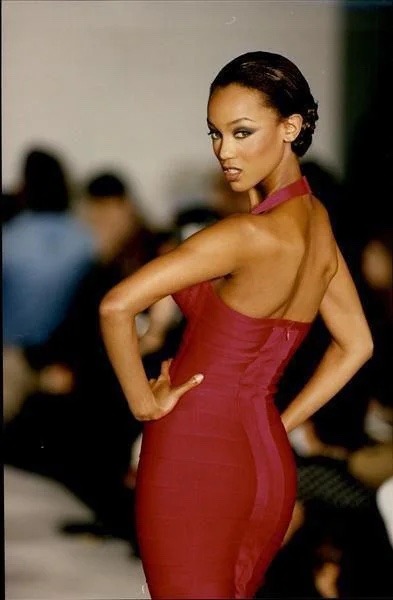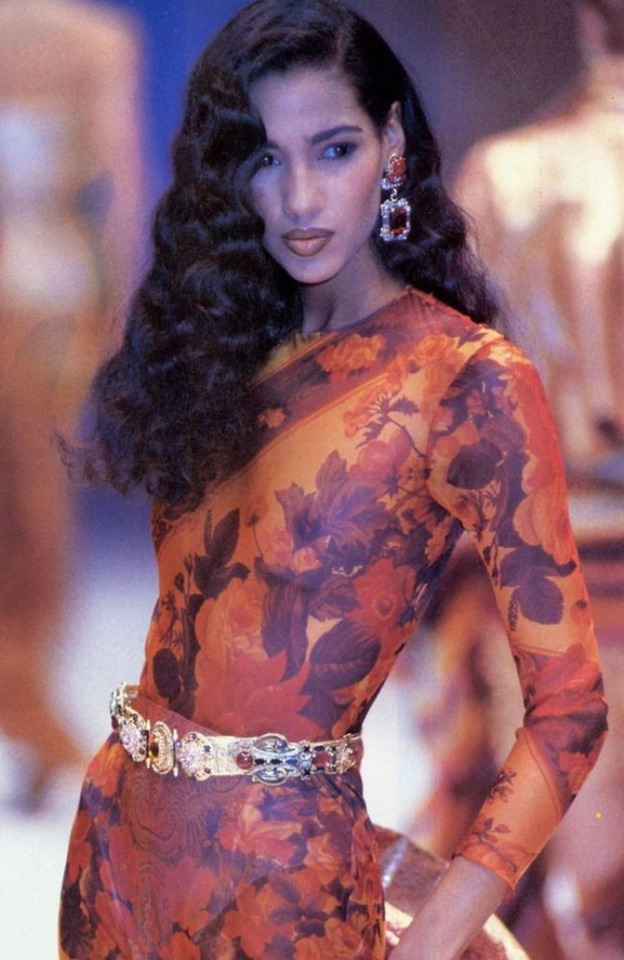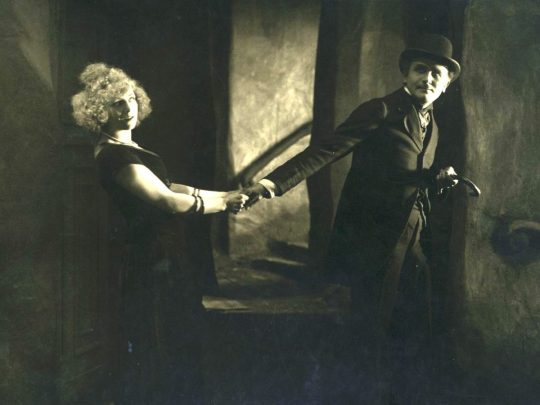#sonia johnson
Explore tagged Tumblr posts
Text
I was standing before the desk of my doctoral dissertation adviser who was angrily telling me that I was not going about my dissertation in a way that suited him. He shouted at me, from his intimidating height, that my master's thesis adviser had told him I had pressured him unmercifully too and hadn't asked his advice either all along as I should have. I asked my fuming educator, as calmly as I could, why my master's adviser had never indicated this to me. I suggested that if he hadn't approved of the way I was proceeding, he should have said something to me at the time. And that since he always signed everything I took to him to sign, and since he had not stood in the way of my receiving my master's degree, I had simply assumed he approved.
Even as I asked the question, however, I knew the answer. I hadn't behaved femininely. I hadn't asked their advice. I hadn't acted as if I weren't capable of doing all this without their help. Hadn't, in short, acted incompetent, helpless, childish, and infinitely grateful for every little scrap of attention or advice they, as superior beings, had given me. I was twenty-eight years old when I began my master's research. I knew exactly what I wanted to do and how to go about doing it. I proposed it to my adviser. He agreed. I did it. That was that—I thought.
Oh, but not so. I didn't lean on him. To me he was just part of the red tape. I cut through him as quickly as possible. And I had no time to linger. Already we had one child and were ready to conceive another. I had to move faster almost than humanly possible, and I did.
Now my doctoral adviser had heard from my previous master that I had not been sufficiently humble and impressed (did not respect the priesthood enough, meaning the men). But this one wasn't going to make the same mistake. He'd show me who was boss. I understood this as women understand it, not intellectually, just in the flesh of my face as he scowled at it, just in the resignation of my weary-with-watching-male-ego-signs flesh. And I knew exactly what to do about it, without thinking, without strategizing—cry. So he would know I wasn't trying to show I was as smart as he was and didn't need him to tell me what to do next. Cry—so he would realize I was just another weak little woman and he had no cause for alarm. Cry—so he would feel bigger and more rational, and still, above all else, still blessedly in control.
So I cried on purpose that day, and because I did I became Dr. Johnson a year later, moving with great speed through a system designed to slow doctoral candidates down. Because I cried.
If men hate to be thus manipulated, then they must allow us to be real, they must not force us to manipulate their egos in order to live a full human life. I hate such machinations. I despise them with all my heart. But women are forced to resort to them because men won't otherwise allow us to exist. And we have a right to life.
-Sonia Johnson, From Housewife to Heretic
732 notes
·
View notes
Text
“We will know we are being effective against patriarchy when we are attacked, belittled, and laughed at, when we are told that we are brainless fools, doing everything wrong, will never get anywhere acting like this, are obviously wanton, unattractive to men, hateful, strident, vicious, and our own worst enemies”
- Sonia Johnson, Going Out of Our Minds
#radfem#radfems welcome#radfems please touch#radfems are right#patriarchy#sonia johnson#going out of our minds#radblr
139 notes
·
View notes
Text
Today's Quote
“I decided to be a human being and not a role”
Sonia Johnson
#sonia johnson#quote#life quote#book quote#quoteoftheday#beautiful quote#quotes#inspiring quotes#life quotes#today's quote#today motivation
6 notes
·
View notes
Text
Sonia Johnson Media
Interviews
Viewpoints - March 5, 1982 Time: 29:18
Speeches
Going Farther Out of Our Minds (19??) Part 1 Time: 58:08 | Part 2 Time: 41:48 | Also Here Time: 1:39:58
Patriarchal Panic: Sexual Politics in the Mormon Church - Sept. 1, 1979 (Text Only)
Church Vs. Women - January 19,1980 Time: 28:30
Misc
Sonia Johnson Papers (Archive Holdings List)
Sonia Johnson Meetup (Year??) Time: 27:53
4 notes
·
View notes
Text
Hey, could y'all link short tidbits (audio or video format) of your favorite excerpts from feminist speeches/talks/interviews/etc, especially if they're older/from known feminist activists. I'm prioritizing short but impactful segments for a project that I'm helping to whip up. Youtube links with timestamps are fine as well!
#feminism#feminist#leftist feminist#misogny#sexism#choice feminism#radical feminism#radfem#radblr#feminist movement#feminist speakers#andrea dworkin#audre lorde#sonia johnson#shulamith firestone#etc
2 notes
·
View notes
Text

youtube live stream today, reading and discussing a separatist essay (and whatever comes up in the chat)
today at 12pm PST / 3pm EST / 8pm UK time
the live-chat is very friendly and welcoming and we love newcomers!
please join us!
0 notes
Text
Idk how accurate I'm being, but by my learning experience, studies in and about aboriginal communities have shown that things (and word & symbols) would often be defined in relation - in comparison, to other things. Similar and yet different ones like sun and moon, man and woman, water and earth would be defined based on opposition, so I don't think it is a stretch that men would originally very well think of themselves as death and destruction bringers when we, women, can very well symbolize life.
“Because men cannot create life, they specialise in death. They compensate by destroying.”
- Sonia Johnson, Going Out Of Our Minds
1K notes
·
View notes
Text



Azzi for the U19 tournament
#azzi fudd#lauren betts#sonia citron#caitlin clark#diamond johnson#te hina paopao#jewel spear#payton verhulst#amari deberry#jersey wolfenbarger#sania feagin#lauren ware#usa u19 wbb
92 notes
·
View notes
Text










Pt.3
#beverly johnson#tyra banks#jolie jones#vinetria#sydney j harper#iman hammam#sonia cole#brandi quinones#girlblogging#this is a girlblog#black supermodels#90s supermodels#gorgeous#beautiful model
113 notes
·
View notes
Text
New trope unlocked: tragic found family, where some are doomed by the narrative but they still stick together through everything
#sonia talks#tropes#writing tropes#character tropes#Was this inspired by Hercules w/ Dwyane Johnson? Maybe
4 notes
·
View notes
Text
Waiting is part of the stereotyped role for women—a large part. Waiting to grow, for breasts and hips to fill out, to wear lipstick, perfume, brassieres: waiting to star in the big role—man enticer. Waiting to be asked for a date. Waiting for the phone to ring. Waiting, waiting for the phone to ring. Waiting to be asked to dance. Waiting to be asked to go steady. Waiting to be asked to marry. Always waiting for someone else to act. Passively, miserably waiting.
And if the phone doesn't ring? If no one asks? If you wait, and wait, and wait, and Prince Charming doesn't come riding up? What can you do?
In the fifties, when I was a young woman, there was nothing you could do and still be considered decent. Being able to choose and act on that choice was a privilege reserved for men. That should have told me something. I think it did, but I didn't want—or didn't know how—to deal with it at the time. So I put it away in that deep unconscious filing cabinet reserved for matters which must have frightened me with their too-clear implications of female servitude and subordination. It took me forty-two years of gathering such data unbeknownst to myself before I finally accumulated more than my file could hold and it burst open, forcing me to look.
Waiting is one of the earmarks of subservience. As Milton truly says, "They also serve who only stand and wait." Waiting is a service. The words waitress, lady-in-waiting, waiter are all service titles. Waiting delineates rank. Sergeants don't keep colonels waiting, but generals do. Teachers don't keep principals waiting, but superintendents do. Those in power can make their subordinates wait, can expect them to wait. To keep someone waiting is manipulation, a method of maintaining control; it is a way of announcing and wielding power.
My unconscious servitude to Rick began early in our courtship. I remember sitting on a bench by the service station for several hours while he fixed his car. It was an unspoken assumption in my youth that girls loved to keep boys company during such times, liked to hold things for them, enjoyed watching them clean the points, or change the brake shoes. Having their girl hovering around must have been like having their own private cheerleader. Girls did it because we wanted to be with them more than they wanted to be with us. We were more emotionally dependent upon them, as we had been trained to be. We needed to be around them, and though they liked having us around, they had other interests in their lives. We had been trained to have only one major interest, despite all the other things we might do, and that was them. Not because it is any more natural for us females to be dependent and to base our entire lives upon some male's approval and presence, but because patriarchy socialized us thus. It is great for male egos. It is catastrophic for ours.
But I didn't get a real taste of the despotism of waiting until Rick discovered the computer at the University of Minnesota. The next ten years were one long struggle against the humiliation of being constantly rejected for the computer—Rick's "iron mistress," his "three sexty." Ten years of being completely forgotten for whole days and suddenly remembered apologetically, of my putting the uneaten supper away and going to bed at midnight or one or two A.M., not having heard from Rick since morning when he promised to be home by six.
That he should have thought it natural to keep a human being waiting for six, seven, twelve hours without word made it clear to me again and again how he thought of me, how not completely human I was to him, how much just a part of himself—not a separate or real person to be taken seriously, or about whose esteem he needed to worry. He would never have kept any male friend whose friendship he valued waiting so consistently for years. No peer would have put up with it.
At the time, I thought it was all my fault. If I were more interesting, more sexy, more something, he would want to come home to me. I blamed myself, when the fault lay in Rick's patriarchal world view.
Part of the unwritten definition of wife is: the one who waits.
I tried to tell Rick over those long years how often I felt rejected and figuratively slapped in the face. I couldn't help but believe he secretly enjoyed the idea of my waiting for him, the constant service of wondering and worrying about him in his absence. Surely there was something more behind his making me wait than mere forgetfulness. He was an extremely intelligent man, but I couldn't get him to understand how deeply he wounded me by showing disdain for the hours of my life I wasted in waiting for him and for the hurt and rage and erosion of love for him this brought about in my heart.
And through it all, I must never make him wait for me. I must never reverse the sadomasochistic game. Yet by calling it that, I admit my own collusion in it. Years ago I should have ceased to care unduly when he came or went, should have planned my life as I wanted without consulting his. Should simply not have allowed him to tyrannize and manipulate me. But I knew that the moment I refused to supply this apparently necessary ego support, I would lose him.
And I did. When I became interested in the ERA, he often had to wait for me—to get off the phone, to come home from meetings, to come to bed. I ceased to pay much attention to when he came and went. I no longer cared a great deal when he was hours late or rejoiced overmuch when he was early. My life no longer centered around him, as his had never centered around me. I began to live an independent life, such as only men are entitled to. That's when I overstepped my bounds and it was all over.
And I've thought since, with considerable wryness, how for nineteen years I waited for him, and how he couldn't wait for me for one.
-Sonia Johnson, From Housewife to Heretic
641 notes
·
View notes
Text
max dashu is really so amazing. she spoke at the first womens event we ever wandered stupidly into and her presentation literally blew my mind. i was like oh shit ok this is what's up. stan max dashu
17 notes
·
View notes
Text
Le Giornate del Cinema Muto 2023: Pordenone Post No 5
Pordenone changes a person. I don’t just mean in the way that my bloodstream is now 80% espresso. It changes your aspirations. My dream now is to live in an apartment designed by Sonia Delaunay, watching Peter Elfelt’s dance films (they are playing before several of the screenings) all day. For loungewear, I would choose the louche shawl-collared robe sported by Jaque Catelain in Le Vertige, and…

View On WordPress
#Aud Egede-Nissen#Bessie Mae Kelley#British cinema#Cecil Hepworth#Estelle Brody#featured#Frank Mottershaw#G.A. Smith#GCM42#Giornate del Cinema Muto#Gunter Buchwald#John Sweeney#Karl Grune#Marcel L&039;Herbier#Maud Nelissen#Maurice Elvey#Mindy Johnson#Peter Elfelt#Pordenone Silent Film Festival#Sonia Delaunay
2 notes
·
View notes
Text




youtube
Beaks: The Movie (1987)
My rating: 3/10
Did not think I was going to watch a The Birds ripoff worse than Birdemic, but this poorly written, poorly dubbed animal welfare nightmare sure did manage it.
#El ataque de los pájaros#René Cardona Jr.#Eric Weston#Christopher Atkins#Michelle Johnson#Sonia Infante#Youtube
1 note
·
View note
Text
REVIEW: Vanish #8
Uhhhhh!!!! This is a good one! I love comics but I don’t often get to read truly amazing stories like this one. Vanish is filled with magic, action, spells, blood, and romance. It has it all! This issue is about the inner struggle of the main character Oliver Harrison as he faces an enemy named Diabolus. Diabolus once went to the same magic school our main character went to, and it was there that…

View On WordPress
#action#Daniel Warren Johnson#Donny Cates#Image Comics#John J. Hill#JP Mayer#Magic#Mike Spicer#Riley Rossmo#ryan Stegman#Sonia Oback#V. Ken Marion
0 notes
Text





Anna Lee - ITV - January 10, 1993 - March 27, 1993
Crime Drama (6 episodes)
Running Time: 100 minutes
Stars:
Imogen Stubbs as Anna Lee
Brian Glover as Selwyn Price
Michael Bryant/John Rowe as Commander Martin Brierly
Ken Stott/Peter Wight as Bernie Schiller
Wil Johnson as Stevie Johnson
Barbara Leigh-Hunt/Sonia Graham as Beryl Doyle
Ceri Jackson as Ros Russell
#Anna Lee#TV#Crime#Drama#1990's#Imogen Stubbs#Brian Glover#John Rowe#Peter Wight#Wil Johnson#Sonia Graham#Anthony Newley
0 notes